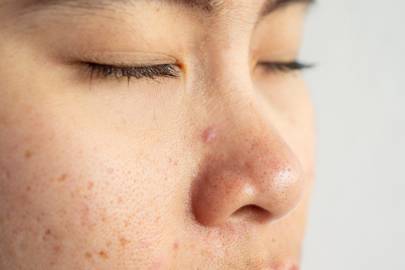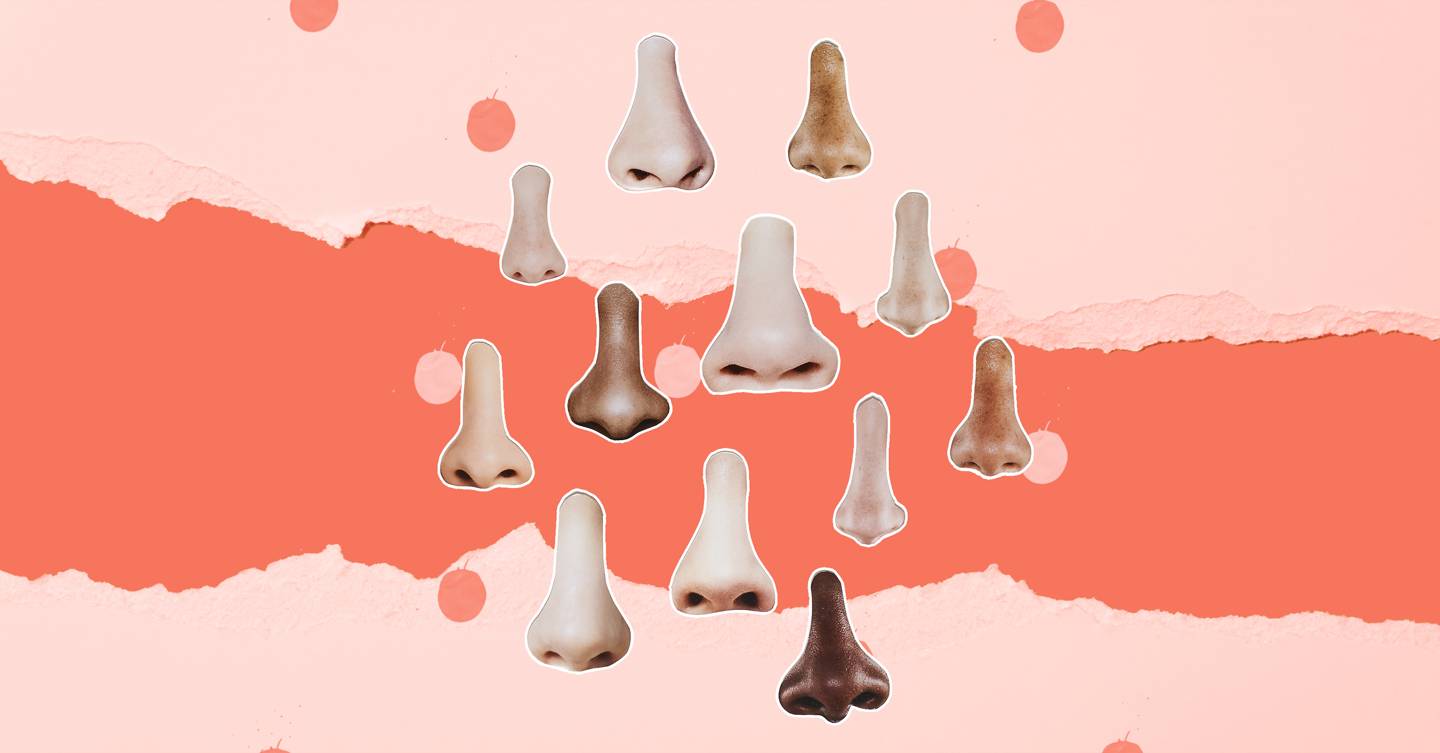Unless you’ve been #blessed with clear skin, you’ve most likely experienced acne at some point in your life, right?
In fact, according to the NHS, acne is one of the most common skin conditions with 95 per cent of people aged 11 to 30 being affected to some extent, which is a hell of a lot of people.
Pesky little spots can pop up everywhere but one of the most irritating (and often painful) areas is on the nose, with hundreds of thousands of Google’s most-asked questions being specifically about nose acne.
If you’ve got any burning questions about the causes of nose acne – and how to treat it – Dr Ophelia Veraitch, a leading dermatologist at the renowned Cranley Clinic on Harley Street, has answered Google’s most-asked questions about it.
What causes spots to occur on the nose, both blackheads and whiteheads?
Blackheads and whiteheads are caused by an over-productions of sebum. With the combination of dead skin and debris from day to day life, pores become blocked and inflamed causing whiteheads and blackheads.
Blackheads are essentially open pore pimples whereas whiteheads are where the dirt and debris get trapped in a pore, often causing redness and inflammation. They are both clinical signs of acne.
Why is my nose red and spotty?
The nose naturally has the largest pores on the face and this means it tends to be the part of the face that suffers the most with blackheads and whiteheads. Sebum (oil) is necessary to keep the skin protected and lubricated, but some people’s sebaceous glands can produce too much sebum. When too much sebum is produced on the nose, this can cause dead skin to start to block pores, which in turn, causes redness, inflammation and ultimately, spots.
How do you get rid of spots on your nose?
The key to treating acne is controlling the oil production and effectively removing dead skin. Ensuring you have a skincare range that is oil-free and avoiding serums is essential as the oil in those products will only exacerbate acne. Look for cleansers which are non-foaming as these will stimulate oil production and ensure that your makeup is non-comedogenic as this will allow your skin to breathe and will help prevent your pores becoming blocked.
Why am I suddenly breaking out on my nose?
Oil production is the key to most breakouts and the levels of sebum are often closely related to your hormones. Puberty, menstruation, pregnancy and menopause can all trigger an increase in sebum production. However, don’t be fooled into thinking sebum over-production can only affect women and teenagers; testosterone belongs to a class of male sex hormones called androgens, which triggers acne by over-stimulating oil glands. Androgens also change the skin cells that line hair follicles making them stick and more likely to clog pores.

Getty Images
Are there any products or skincare ingredients that can specifically tackle blackheads and whiteheads on the nose?
Night-time retinoids are fantastic as they speed up the cell turnover of the skin, helping to restore a healthy skin cycle and reduce the amount of dead skin on the surface, in turn reducing the chance of blocked pores. When combined with an oral treatment, this will give fantastic results. These can include tetracycline which is used for it’s anti-inflammatory properties, spironolactone which is great for cyclical acne and is an anti-androgen. Another option is Roaccutane, which needs careful monitoring, however, offers long term benefits.
When trying to treat acne, it is also important to consider treatments which compliment your skincare and oral treatment. This can include deep-cleaning facials such as the HydraFacial which includes extraction to give temporary relief from blackheads. Chemical Peels are another fantastic treatment to help rejuvenate the skin and give a brighter complexion.
Can pore strips help or do they do more damage than good?
Pore strips are unfortunately part of the over-the-counter culture of selling a simple solution to acne and blackheads. However, these will only remove the tops of blackheads and likely remove some of your healthy skin cells. As these skin cells are removed, you leave your skin red, flaky and inflamed and can even cause spider veins and broken capillaries. If you use them over already inflamed areas with broken skin or a damaged pore, you can tear the skin and cause scarring. It really is best to stay away from these quick-fix solutions as they won’t create long-term benefits.
Anything else readers should know about spots on the nose?
Spots on the nose are remarkably common and the vast majority of the population in the UK suffer from an excess of sebum production, so you don’t need to feel alone. Treatment is available and a long-term beautiful complexion is not impossible, just find yourself a reputable dermatologist who can work through your skin issues with you to give you the skin and confidence you deserve.
Read our definitive guide to acne and acne scarring prevention and treatment. And for any popaholics among us, don’t even think about touching your face until you’ve read these words of warning from Dr Pimple Popper.
